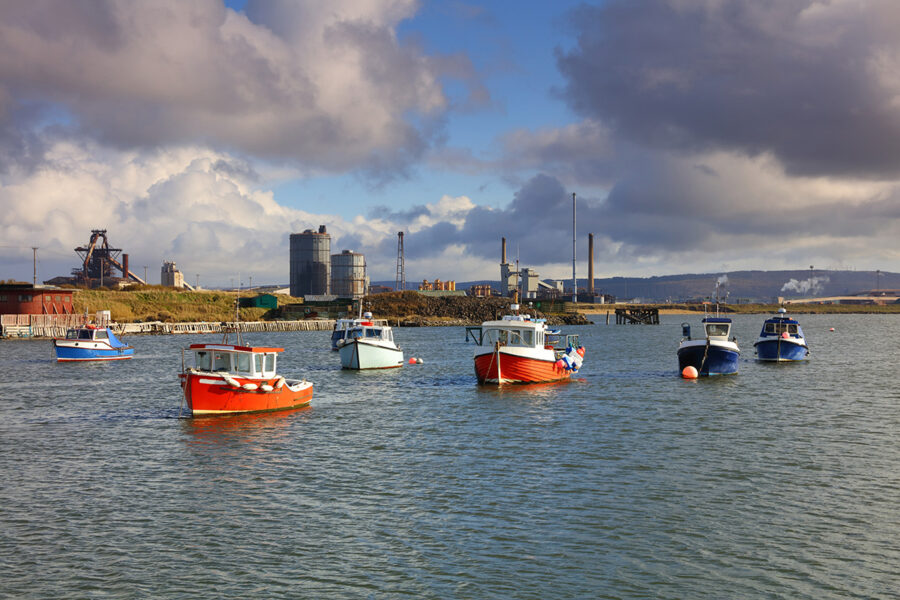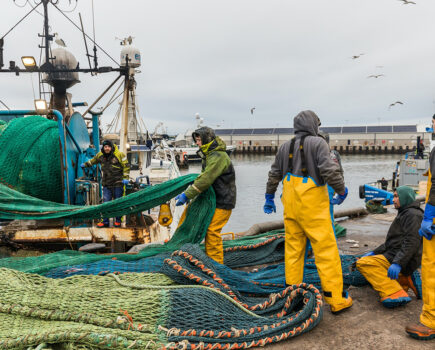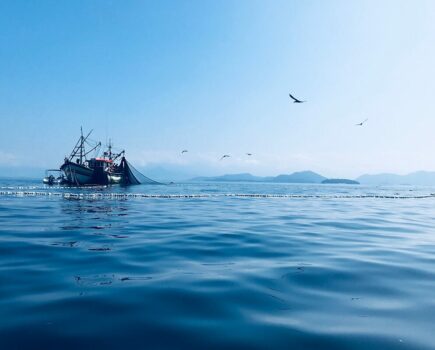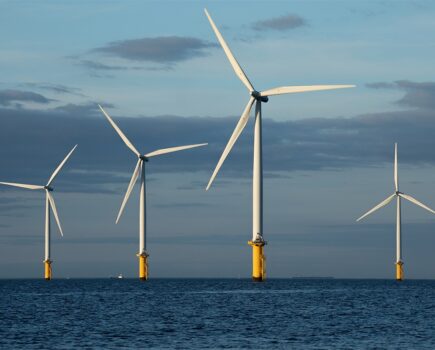“Competition for space in UK waters is regarded by many fisheries stakeholders as the single greatest challenge now facing the fishing industry,” according to a new report by the All-Party Parliamentary Group (APPG) on Fisheries, reports Tim Oliver.
The group organised an event on 30 November bringing together parliamentarians, policy-makers, fishing industry representatives and other marine stakeholders to discuss challenges around marine spatial planning (MSP) and potential policy solutions .
While a number of activities in UK waters contribute to competition for space, including MPAs, aquaculture, pipelines and cables, the APPG event focused mainly on offshore wind, which is viewed by the fishing industry as the most significant threat, especially as the expansion of offshore wind capacity accelerates to help meet the UK’s target of net zero by 2050.
The APPG report following the event sets out ways forward recommended to policy-makers by participants at the meeting:
- Apply the precautionary principle to all marine plans and activities, not just fisheries
- Link up all government departments, parliamentary bodies and statutory agencies involved in MSP to avoid isolating different departments and processes and minimise the risk of cumulative impacts
- Fund and otherwise facilitate the fishing industry to collect comprehensive data on where fishing takes place in UK waters, as a vital first step towards a more spatial approach to fisheries management
- Establish a statutory adviser or intermediary to represent the fishing industry in MSP consultations
- Ensure that fishers are consulted as early as possible in MSP, leasing, licensing and development processes via appropriate channels, and with accessibility in mind
- Encourage consultation and feedback processes to continue after planning decisions have been made
- Establish a clear regulatory regime to overcome insurance and liability concerns which are acting as barriers to the fishing industry exploring whether co-location with offshore infrastructure is feasible.
The effects of displacement of fishing activity and the importance of industry to the nation’s food security are highlighted in the report. It points out that the UK fishing industry plays a vital role in the UK coastal economy and the wider seafood supply chain.
“It can be a principal source of income, employment and cultural heritage for often vulnerable coastal communities,” says the report. “It also supports national food security, providing a valuable source of protein with low carbon emissions compared to protein derived from livestock.
“Any reduction in landings or shrinkage of fishing fleets would have knock-on economic and social impacts, with members of the fishing industry concerned that any local jobs lost as a result of competition would not be replaced by equivalent opportunities in the renewable energy sector.”
On displacement, the report says: “When fishing vessels are forced out of their usual fishing grounds and into those traditionally fished by others, the potential for conflict increases. Conflict becomes more likely between mobile and static gear users, and/or between vessels of different sizes.
“Small inshore vessels are especially vulnerable to displacement by larger vessels coming closer to shore, and there are financial costs and safety risks associated with inshore vessels being forced further out to sea.
“Concentrating fishing effort within smaller areas also increases the risk of overexploitation of stocks or environmental damage, especially where incoming fleets use higher- impact gears.”
The report notes that new marine infrastructure also has the potential to negatively impact fish stocks, particularly affecting spawning and nursery grounds for key stocks, for example through physical habitat disturbance or the generation of electromagnetic fields.
“Reductions or migrations in fish stocks as a result of infrastructure will further affect where fishers can fish and how much they are able to catch,” says the APPG report.
In its conclusion, the report says: “With the UK’s net-zero target driving a surge in construction of offshore wind farms, it is essential for policy-makers to take steps to mitigate potential impacts on the fishing industry, coastal communities and the marine environment.”
It was clear from the APPG event that ‘fair and effective consultation and engagement processes are an essential basis for improving MSP in the UK, principally by furnishing marine developers and other users of marine space with the data and information they need to avoid negative impacts on fishers as much as possible’, it says.
The government has a key role to play in this by ensuring cross- departmental and cross-border collaboration, it says, and it should also introduce a regulatory regime that takes into account the breadth of interactions now taking place between fishing and infrastructure in the UK’s marine space.
“The fishing industry made it clear that they recognised the need for increasing the nation’s renewable energy capacity, but urged that this was not at the cost of losing a valuable and culturally significant industry,” concludes the report.
Report welcomed by northern isles MP
Orkney and Shetland MP Alistair Carmichael has welcomed the release of the APPG report.
He said: “Having raised the growing concerns for the fishing industry around spatial squeeze in parliament for some time, I am enormously pleased to see this report arrive. It reinforces exactly what fishermen have been saying. The industry does not object to sharing our seas with others – they simply do not want to be the first cut out of discussions.
“This report makes clear that the biggest problem in managing spatial squeeze is in the lack of big-picture thinking in government. I am sure that Scottish and UK ministers do not intend for fishing grounds to be curtailed – perhaps with a few exceptions – but the lack of consultation and openness is having exactly that effect. The best solution to this problem is to bring everyone affected into the discussions from the start.
“There is no reason why fishermen, energy developers and everyone else making use of our seas cannot come to an equitable balance of interests. If ministers and officials take this report for their inspiration, then they will be off to a good start.”
This story was taken from the latest issue of Fishing News. For more up-to-date and in-depth reports on the UK and Irish commercial fishing sector, subscribe to Fishing News here or buy the latest single issue for just £3.30 here.








